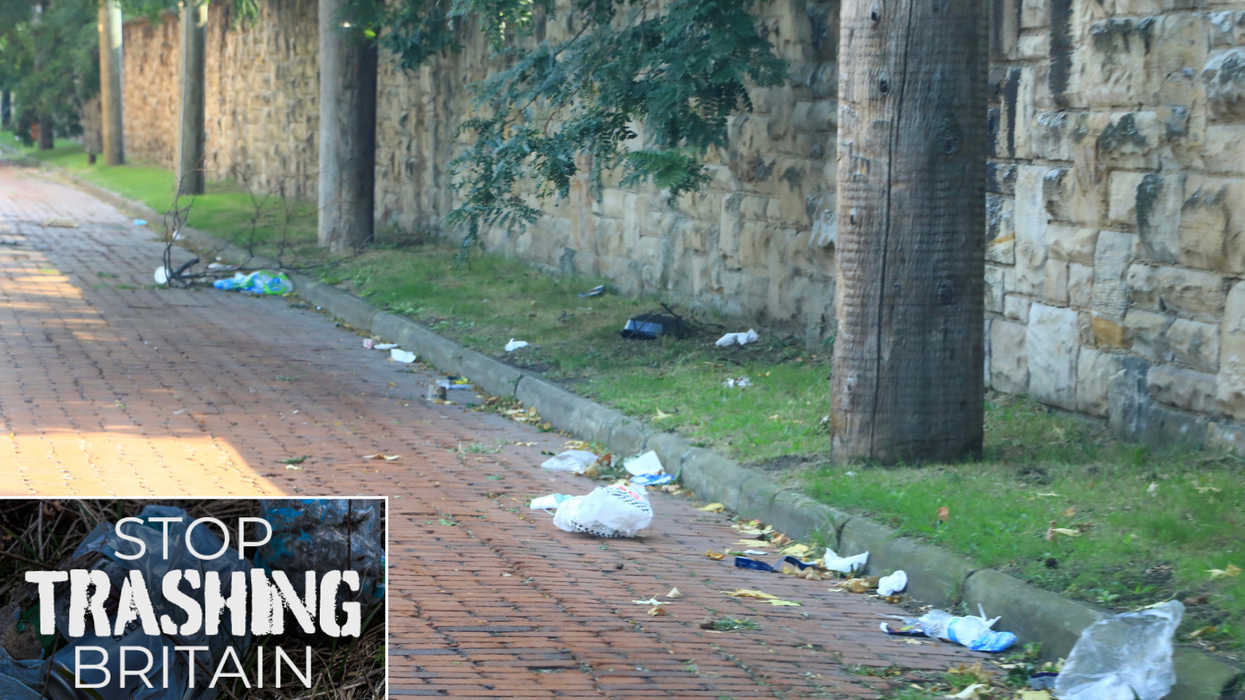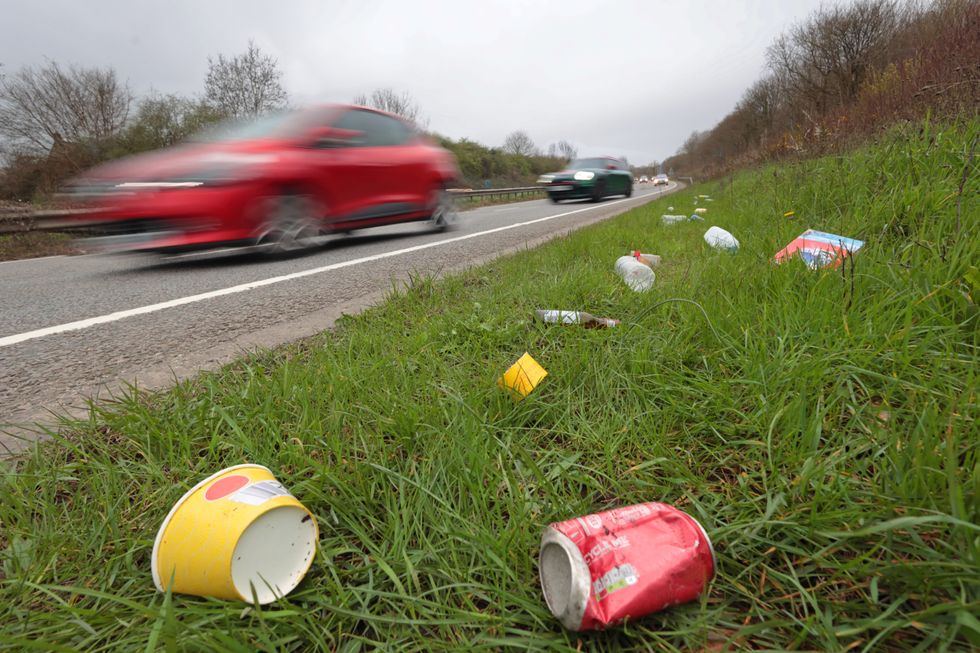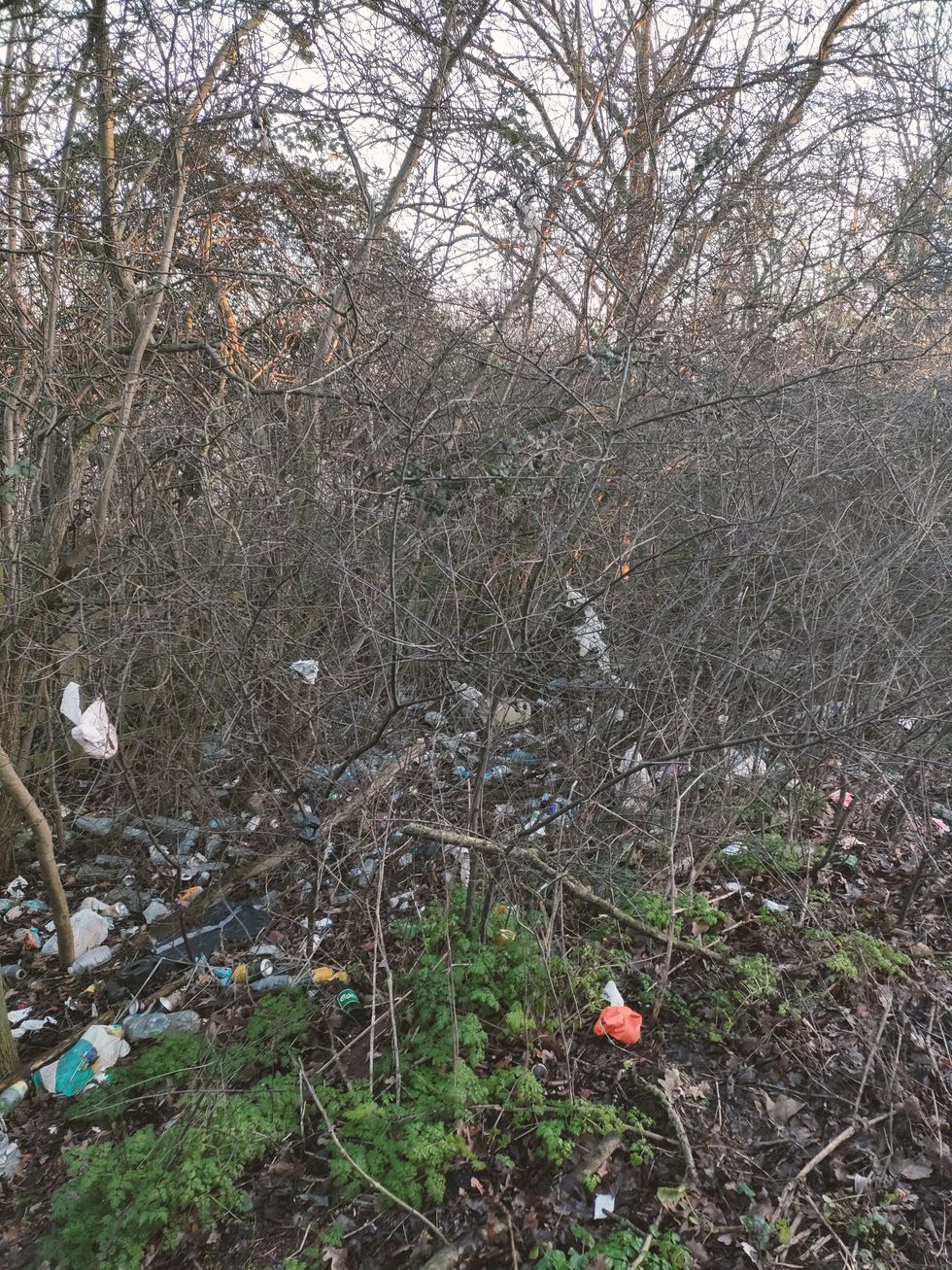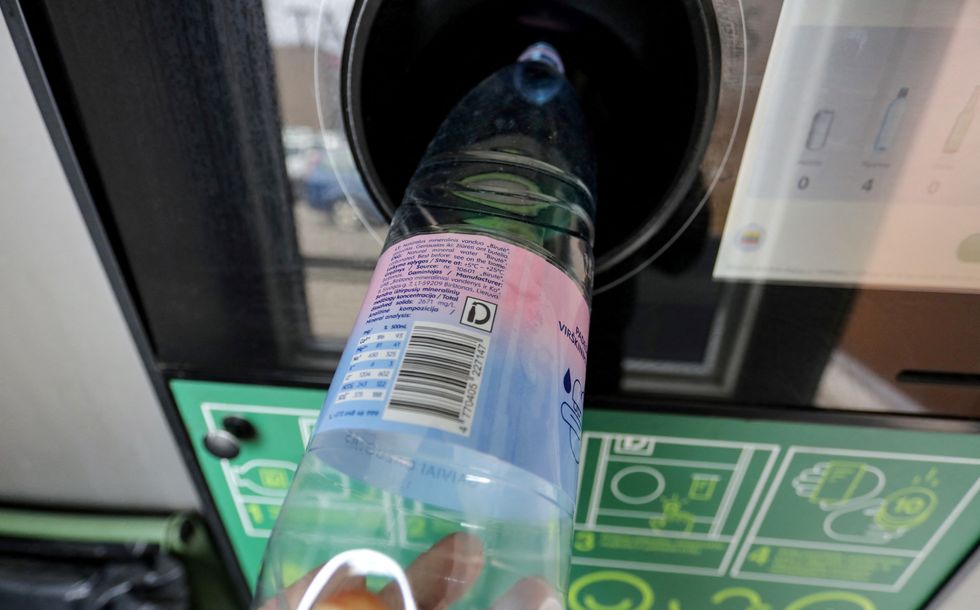'Embarrassing!' Just 10 per cent of streets and parks left unaffected by litter blight, new report finds

Two-thirds of survey respondents said they would feel unsafe walking on littered streets at night
Streets in the most deprived areas three times more likely to be littered than those in affluent neighbourhoods
Don't Miss
Most Read
Trending on GB News
Only one in ten streets and parks across England are free from litter, an extensive new report has found.
Researchers walked more than 1,140 miles across England between 2013 and 2024, surveying various landscapes from rural villages to city centres.
SIGN OUR PETITION: CALLING FOR HARSHER PUNISHMENT FOR THOSE THAT TRASH OUR COUNTRY
Keep Britain Tidy's report, titled 'A Rubbish Reality', revealed that just nine out of every 100 surveyed locations were completely clear of litter.
The study uncovered a stark inequality, with streets in the most deprived areas three times more likely to be littered than those in affluent neighbourhoods.
Sign our petition to stop the litter blight across our United Kingdom
 Two million pieces of litter are dropped in the UK everydayGetty
Two million pieces of litter are dropped in the UK everydayGettyCigarette butts, sweet wrappers, chocolate packaging, chewing gum wrappers, and drinks containers were identified as the most common items discarded on streets.
The impact of littered streets extends far beyond aesthetics, with Keep Britain Tidy's research revealing significant effects on community wellbeing.
Two-thirds of survey respondents said they would feel unsafe walking on littered streets at night.
One in seven people reported that living in areas with litter problems would negatively affect their mental health.
STOP TRASHING BRITAIN:

An overwhelming 87 per cent of those surveyed said they would be reluctant to buy or rent property in littered areas
GB NewsDo you have a story about litter you’d like to share? Get in touch by emailing holly.bishop@gbnews.uk
The issue also poses serious economic challenges for affected communities.
An overwhelming 87 per cent of those surveyed said they would be reluctant to buy or rent property in littered areas.
More than three-quarters believed litter would discourage business investment in their communities.
"Litter is considered to be not significant in terms of measurement of deprivation. But what we found is that it does have a profound effect. It makes people feel unsafe," said Allison Ogden-Newton, chief executive at the charity.
"It makes people feel embarrassed about where they live and where they work," she added.
A new deposit return scheme, set to launch in 2027 across England, Scotland and Northern Ireland, could help tackle the litter crisis.
The recycling initiative will require consumers to pay a deposit for single-use drink containers, which can be reclaimed when returning empty containers.

A new deposit return scheme could help tackle the litter crisis
Getty
Keep Britain Tidy's chief executive believes this scheme could be transformative.
"We're the largest consumers of food and drink on the go in Europe. That we're actually creating an awful lot of packaging - the deposit return scheme will have a radical effect and dramatically improve the amounts of drinks containers, specifically plastic and aluminium, that are subsequently littered," said Ogden-Newton.
The charity also emphasises the importance of producer responsibility and developing a new litter strategy to address the issue.
Responding to the report, Cllr Adam Hug, environment spokesman for the Local Government Association said: "Councils work hard to keep parks, streets and public spaces clean and free from unacceptable littering.
"Responsibility for clearing up litter lies with the person dropping it or leaving it behind. Councils run a range of awareness and clean-up campaigns, and Fixed Penalty Notices can be issued in cases where a person littering has been caught in the act.
"In order to reduce litter we must reduce overall waste. At a time when councils are facing significant financial pressures packaging producers must take responsibility for meeting costs of disposing of this litter and in helping further reduce and recycle packaging waste."
Sign our petition to stop the litter blight across our United Kingdom








